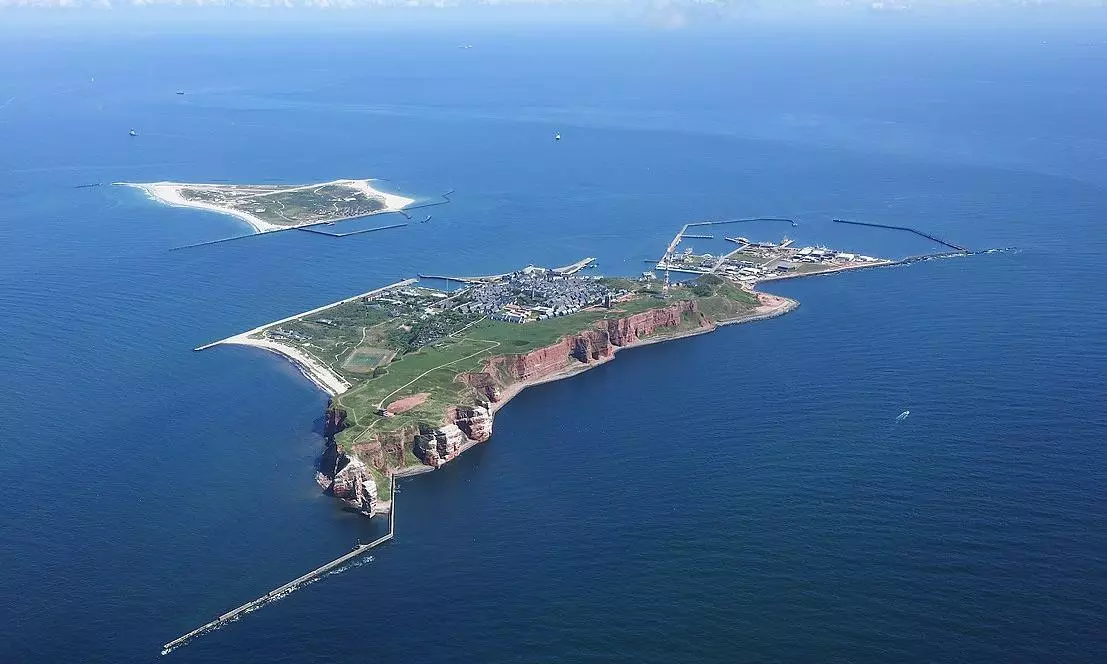
Quantum physics 100 years on: Experts meet in Germany, where it all began
Nobel laureates, other physics experts take part in event on Helgoland island, where Heisenberg developed his theory, for a dekko on modern-day quantum physics

Historically, the year 1925 is crucial for quantum physics.
This is because Werner Heisenberg, the father of quantum physics, developed his quantum theory and the basics that year, which led to the famous uncertainty relations
∆x ∆p ≥ ½ h
in this theory, by staying in an island about 80 km north of northern Germany in the North Sea. He was suffering from hay fever; aspirin and cocaine could not help him much. He decided to go to this treeless German island.
Werner Heisenberg (Dec 5, 1901 to Feb 1, 1976)
This led to the discovery of the initial foundations of quantum theory by giving up the classical notions of particles and their paths.
Navigating quantum universe
This eventually led the UN to declare 2025 as the Year of Quantum Science and Technology. Commemorating this historic event, a conference was held last month on the same island for a week, where nearly 300 international experts (which included four Nobel laureates) on modern-day quantum physics were present.
Interestingly, the delegates travelled to the island the same way Heisenberg did 100 years back, by boat.
Quantum physics has grown from those painful days to understand the nature to a much more sophisticated formulation now. The presentations covered foundations of quantum mechanics, quantum information, quantum computing, and quantum sensors.
Watch: Know more about quantum dots - the technology that seems 'magical'
Evolution of quantum theory
Objections to the Copenhagen interpretations were raised by people like Einstein, Schrodinger, David Bohm and many others, and the past five decades have led to a far better understanding of quantum theory. The concepts led to much confusion at the foundational level and remain so even now. This led Feynman to declare: "I can safely declare nobody understands quantum mechanics."
The questions of quantum entanglement, nonlocality and the inherent meaning of measurement were also questioned at the recent conference.
The basic question was posed — whether the role of science, particularly physics and mathematics, is extracting knowledge from nature. Also, Nobel laureate Anto Zeilinger argued whether knowledge as a state of nature exists only when we measure it.
Reality of nature
On the other hand, Alain Aspect argued that quantum theory describes the reality of nature and is independent of what we know about it. In the quantum universe, nonlocality is a reality and may become useful, too.
The start of the meeting was initiated by signing of the The Gold Book by the Nobel laureates (Anto Zeilinger, Alain Aspect, Serge Haroche and David Wineland) and followed by others. There were about 30 plenary lectures, five public debates, and several posters.
Carlo Rovelli, the author of the book Helgoland: Making Sense of Quantum Revolution, was also present. He argued about the quantum theory of spacetime. Juan Maldacena of the Institute for Advanced Studies, Princeton argued about quantum information from black holes and white holes.
Practical applications
All these esoteric ideas will stay in the realm of speculations except for the current trend of applying quantum physics to more practical quantum communications, encryptions and computing.
Also read: Axiom 4 a stepping stone for India’s space travel: Prof Venkateswaran
In the future, some of these will revolutionise society, with the entry of artificial intelligence into the workplace. On the practical side, there are technological sensors to control and manipulate at extremely small length and time scales.
Chinese scientists described the ability to communicate through long distance maintaining entanglements. Even modern experiments like LIGO to detect gravitational waves, quantum science is needed to eliminate minute noises.
The meeting also had political connotations. Russian scientists were prevented from attending, and Carlo Rovelli remarked about the need to go beyond politics for understanding the nature of science. Due to the commercial angle, the Chinese scientist gave a pre-recorded video talk, too.
Misconceptions in India
There are also lot of misconceptions in India relating to the philosophy of quantum physics with our own Vedic literature.
Also read: Is space a cosmic computer?
This came from the not-so-great book The Tao of Physics by Fritjof Capra. The author says Heisenberg was influenced by Rabindranath Tagore's explanation to Heisenberg about Hinduism and philosophy. It is true that Heisenberg visited Kolkata and Chennai (then Calcutta and Madras) and met Tagore.
Astrophysicist Chandrasekar, who was a student at Presidency College at that time, was his Chennai city tour guide. But these meetings took place in 1929. Four years after his work was published. Clearly, Hindutva people are trying to own the greatest contributions of the last century.
On the whole science without borders and for the benefit of humanity is the need of the hour now. The road to get to this is not a well laid path, but full of stones.

